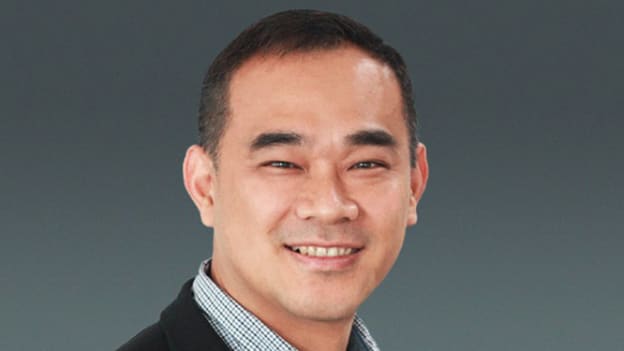The need for people to learn will never stop: Kydon's Founder & CEO

Kydon is the leading provider of learning technologies in Singapore and Asia, which seeks to transform learning for the 21st-century workforce. Their passion is to transform learning by fusing advanced pedagogies with cutting-edge learning technologies. They believe learning should engage the learner’s imagination and intellect – empowering people to maximize their potential and renew their lives.
David started his career in the military, winning a Singapore Armed Forces (SAF) award for his leadership skills and was well on his way to be a career soldier. But his inner calling to make an impact in the wider society of Southeast Asia led him to move into the learning technology space – with a vision to transform the industry landscape.
Here are a few excerpts from the interview:
You have worn different hats in your professional journey. From working in the military to launching your start-up, how has your journey been so far? How did you overcome them?
It has been a very exciting and rewarding journey. I treasure the experience gained in the military, where I earned a scholarship to learn instructional and learning technologies. I had the opportunity of designing and implementing one of the overarching learning systems for the organization, gaining a lot from there. Some of the main takeaways included design, development, systematic planning and implementation of learning technologies in organizations.
I then moved from a structured organization to the start-up ecosystem around six years ago; it was a very different learning experience altogether. As a start-up, I did not have any structure in place so I slowly built up the firm’s core processes, governance, business development, etc. through experimentation. We have grown to nearly 100 strong and progressed from the time we started and we continue to serve our clients well, which helps us scale and impact the community.
What are some of the challenges that you have faced in the past?
One of the biggest challenges was understanding how the market works and making the first sale. When you first start, you do not have any references nor track record. Although I had some experience as an individual, my start-up was new in this space. This led me to believe that building an organization’s credibility starts from within – each and every individual is important.
With time, you weave them together and watch your firm’s advocates and success stories grow.
The second challenge I faced was dealing with the nitty-gritties of business: how to create a balance sheet, how to manage tax flow and things like that. These were very new for me and I had to learn very quickly. Hence, rapid learning is critical for the journey to be successful.
What are some future trends you can predict for the learning technology industry as a whole?
This industry continues to have great potential because of the need for people to learn, either in corporate or educational settings. As organizations and products become more complex, people need to by learning and upgrading their skills. When that happens, organizations begin to progress, accelerating the growth of their countries.
The increase in internet penetration, the pervasiveness of connectivity and smartphones will continue to be the motivating factor behind the immense growth of learning technologies.
Traditional methods of learning will not remain relevant for long and we have to use technology to maximize impact. We have to think of different ways to make learning more effective and engaging at the same time. Content is key to learning and it has to be developed continuously to meet the changing needs of how people approach learning.
Millennials are the future of work. As a learning technology leader and influencer yourself, how do you foresee the role of millennials in the transformation of this industry?
Millennials will play a huge role in how learning will happen in the future. In the past, the industry was more unidirectional where the top echelons in both corporate organizations and educational institutes were responsible for dispersing knowledge to the ground level learners who were mostly passive in nature. Millennials will not be just the consumers of learning – they are now also the co-creators. Because of their desire to be more participative, they are now more keen than ever in contributing to the process of learning. They are fast becoming the key pillar in organizations in building and sharing knowledge. What this means is we now have to adopt a different kind of thinking in organizational learning design – it will be less hierarchical and more collaborative, less top down and more bottom up.
What are some of the major changes you predict in the learning technology space in the SEA market?
The learning technology industry is still fairly nascent in this region, although many institutions are now using learning technologies more progressively. Corporates are not doing much in this region yet; but in the coming future, we will see many more starting to adopt learning technologies, in order to improve their workforce. The result? Educational institutions will explore more innovative technologies, while corporates will begin to adopt more in their learning ecosystem.
What are your key focus areas for the year 2018-19?
Kydon is one of the fastest growing learning technology companies in Singapore. We are beginning to make our entry into Southeast Asia and we will do it more rapidly in the next 2 years. We are already in Malaysia and Vietnam and our plan is to be present in all Southeast Asian countries. We want to be more than just a provider of learning technologies – we aim to be a thought leader in this space so that we can shape this industry going forward.

















